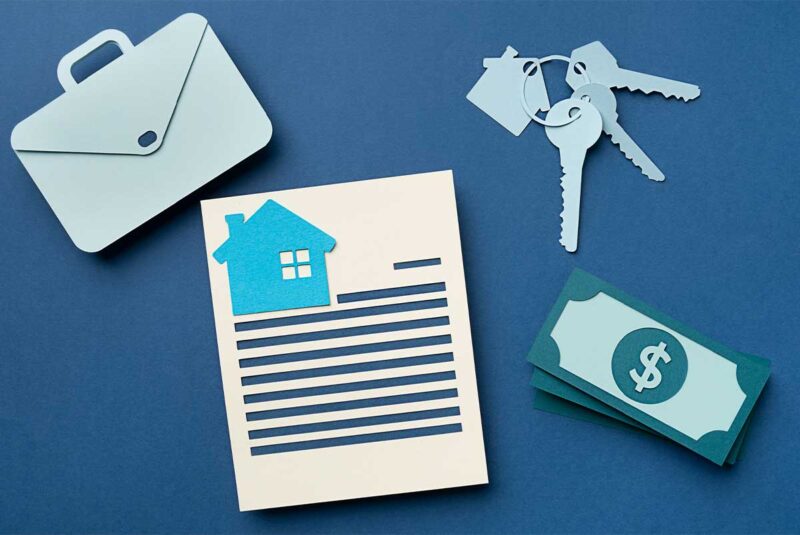Ready To Buy a Home?
Get Approved to Buy a Home
Rocket Mortgage® lets you get to house hunting sooner.
You’ve made a lot of progress in the home buying process. You’ve started saving money for a down payment, spent time house hunting and found your dream home.
Now you’re ready to move ahead with a mortgage lender. And you’ve arrived at the point where you need to make the all-important “credit union vs. bank mortgage” decision.
We can help walk you through your decision and point out what you’ll need to consider when you’re deciding whether to go with a credit union or bank.
Defining Credit Union Mortgages and Bank Mortgages
Whether it comes from a credit union, a bank or another lender, a mortgage is a home loan for buyers who can’t afford to purchase a home all cash.
The lender pays the seller the sales price of the property. You repay that amount to your lender in monthly installments (aka your monthly mortgage payment).
While the product – a loan to purchase a home – is the same, there are nuances to consider when you’re getting a mortgage through a credit union or a bank.
What’s the difference between a credit union and a bank?
Many consumers think banks and credit unions are the same things – but that’s not the case.
While credit unions offer many of the same services as banks, the biggest difference is that they are nonprofit organizations that only offer services to their members.
In fact, if you join a credit union, you become a partial owner and can vote on policy and leadership changes.
Banks, on the other hand, are for-profit businesses. They have a fiduciary responsibility to make money for their shareholders.
What Are the Pros and Cons of Getting a Mortgage With a Credit Union?
So, should you get a mortgage through a credit union or a bank? Some advantages and disadvantages come with either choice – especially when you’re buying a home.
Pros of getting a mortgage with a credit union
- It can be easier to get a loan: Credit unions can be more flexible with mortgage loans, so the chances of getting a loan approved are higher. In general, credit unions are more likely to lend to buyers with lower credit scores and offer lower down payment options.
- Lower rates and fees: Because credit unions are nonprofit financial institutions, they typically offer lower fees and mortgage interest rates than banks.
- Personal service: Credit unions are known for personalized, face-to-face customer service. When you have a problem or a request, you may not experience as much “red tape.”
Cons of getting a mortgage with a credit union
Of course, credit unions aren’t perfect. There are some drawbacks to choosing a credit union as your mortgage lender.
- Membership required: Most credit unions require membership before you can apply for a mortgage loan. If you don’t qualify for membership, you likely cannot use the credit union’s services. And membership usually has a fee. It’s usually a minimum $5 – $25 deposit into a savings account.
- Fewer locations: A credit union might operate in a small area, like a town, city or region. It may not be easy to find a brick-and-mortar location when you need one.
- Limited technology: Some credit unions are smaller institutions that don’t have the money to invest in tech the way large banks do. Customers might feel like their credit union’s online or mobile banking technology is outdated.
What Are the Pros and Cons of Getting a Mortgage With a Bank?
Now let’s turn our focus to banks. Our list of benefits and drawbacks can help you decide whether a bank might be a better mortgage financing option for you.
Pros of getting a mortgage with a bank
The benefits of using a bank for your mortgage are:
- More branch locations: Banks tend to have more brick-and-mortar locations – which makes branch locations easier to find.
- Better technology: Large banks can generally invest a lot of money in online banking platforms and apps. You can easily access your account when you’re traveling. And you can get to the root of any problems without calling or visiting a branch.
Cons of getting a mortgage with a bank
Some of the disadvantages of choosing a bank as your mortgage lender are:
- Customer service: A large bank may not provide the same level of customer service and attention you’d find at a local credit union.
- Higher rates and fees: Banks tend to charge higher interest rates and have more fees.
- Harder to qualify: Banks can be more stringent about loan approvals, making it harder for home buyers with lower credit scores or smaller down payments to qualify for a mortgage.
Either Way, Both Roads Lead to a Monthly Mortgage
Whether you go the credit union route for lower down payment and rate options or the more traditional bank path for greater accessibility, both lead to one final destination: a monthly mortgage.
Consider the Long-Term Relationship
When you’re wondering who to get your mortgage from, another factor to consider is the importance of your relationship with the financial institution. Sometimes it just makes sense to get your mortgage from the business where you’ve built up trust as a customer.
Do you want your mortgage to stay with your original lender? It’s common practice for banks to sell their mortgages to third-party lenders or servicers. It’s less likely that a credit union will sell its loans. If you’d prefer to keep the same lender for the life of the loan, you may want to consider working with a credit union.
Are Credit Unions Safer Than Banks?
The short answer is: They’re just as safe as banks.
At most credit unions and banks, customer deposits are federally insured, and the coverage is pretty much identical.
Banks vs. Credit Unions for Mortgages FAQs
Well, that depends on you. Credit unions usually offer lower rates, but there are typically membership requirements, and their technology may be outdated. Banks have better technology and more locations, but usually charge higher fees. You need to decide what’s most important to you.
The credit score you need will depend on the mortgage type. Whether you get a conventional loan from a credit union or a bank, the minimum qualifying credit score is 620.[1] If your credit score falls under 620, you may qualify for a government home loan, which is offered by many credit unions.
The short answer is that credit unions are nonprofit organizations. They exist to serve their members and put their profits back into their products, services, initiatives and members.
Time To Decide Which Option Is Right for You
Deciding to apply for a mortgage with a credit union or bank is a personal choice. Make your choice an informed one by making a list of your top priorities and seeing which lender checks off the most boxes.
A bank might make the most sense for you if you value the convenience of easy online banking and easy-to-access branch locations. If you meet the membership requirement for a credit union and your top priorities are to get the lowest mortgage rate possible and personalized customer service, a credit union might be a better choice.
Get approved to buy a home.
Rocket Mortgage® lets you get to house hunting sooner.
The Short Version
- Credit unions are nonprofit financial institutions owned by their members; banks are for-profit financial institutions owned by shareholders
- In general, credit unions are more likely to lend to buyers with lower credit scores and offer lower down payment options
- Banks usually have more brick-and-mortar locations – which makes branch locations easier to find
Fannie Mae. “Selling Guide.” Retrieved December 2022 from https://selling-guide.fanniemae.com/Selling-Guide/Origination-thru-Closing/Subpart-B3-Underwriting-Borrowers/Chapter-B3-5-Credit-Assessment/Section-B3-5-1-Credit-Scores/1032996841/B3-5-1-01-General-Requirements-for-Credit-Scores-08-05-2020.htm#Minimum.20Credit.20Score.20Requirements




